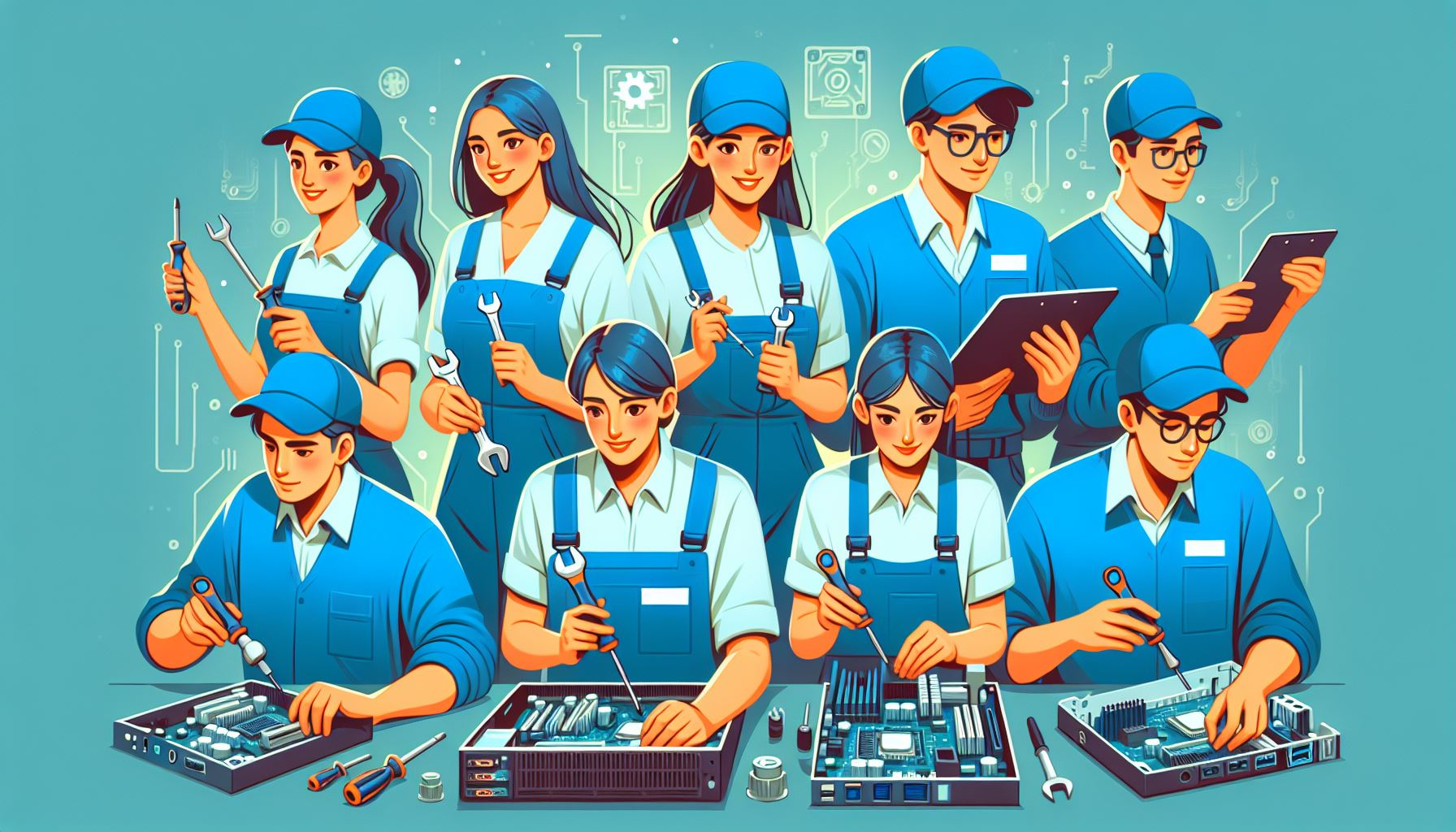By appointment only. Please send us an email or call us to schedule your appointment.
Why You Should Keep Your Computer in Good Shape

- April 7, 2024
-
amcomputersny
- Computer Knowledge
- No Comments
A guide to the benefits of regular maintenance and some tips to follow
Computers are essential tools for work, education, entertainment, and communication. However, they are also prone to problems such as slow performance, malware infections, hardware failures, and data loss. That’s why it is important to keep your computer in good shape by performing regular maintenance tasks. In this blogpost, we will explain the importance of regular maintenance for your computer and provide some tips to help you do it effectively.
What are the benefits of regular maintenance?
- It improves your computer’s speed and performance. Over time, your computer accumulates temporary files, unused programs, duplicate files, and other junk that takes up space and slows down your system. By cleaning up your disk, uninstalling unwanted software, and defragmenting your drive, you can free up space and make your computer run faster and smoother.
- It protects your computer from malware and viruses. Malware and viruses are malicious programs that can harm your computer, steal your personal information, or display unwanted ads. They can also affect your computer’s performance and stability. By updating your operating system and antivirus software, scanning your computer regularly, and avoiding suspicious links and downloads, you can prevent malware and viruses from infecting your computer and keep it secure.
- It prevents hardware failures and data loss. Hardware failures are physical problems that affect your computer’s components, such as the hard drive, the motherboard, the RAM, or the power supply. They can cause your computer to crash, freeze, or not boot up. Data loss is the loss of your important files, such as documents, photos, videos, or music, due to hardware failures, malware attacks, accidental deletion, or formatting. By checking your hardware for errors, backing up your data, and replacing faulty parts, you can prevent hardware failures and data loss and save yourself from frustration and expense.
What are some tips for regular maintenance?
- Clean up your disk. You can use the Disk Cleanup tool in Windows or the Storage Management tool in Mac to delete temporary files, empty the recycle bin, and remove other unnecessary files that take up space on your disk.
- Uninstall unwanted software. You can use the Control Panel in Windows or the Applications folder in Mac to uninstall the programs that you don’t use or need anymore.
- Defragment your drive. You can use the Disk Defragmenter tool in Windows or the Disk Utility tool in Mac to defragment your drive and optimize its performance. Defragmenting your drive rearranges the files on your disk so that they are stored more efficiently and accessed more quickly. You should defragment your drive at least once a month, or more often if you use your computer heavily.
- Update your operating system and antivirus software. You can use the Windows Update tool in Windows or the Software Update tool in Mac to check for and install the latest updates for your operating system and antivirus software. Updating your operating system and antivirus software ensures that your computer has the latest security patches, bug fixes, and features that can protect your computer from malware and viruses and improve its performance and stability.
- Scan your computer regularly. You can use the Windows Defender tool in Windows or the built-in antivirus software in Mac to scan your computer for malware and viruses and remove them if detected. You should scan your computer at least once a week, or more often if you use the internet frequently or download files from unknown sources.
- Check your hardware for errors. You can use the Device Manager tool in Windows or the System Information tool in Mac to check your hardware for errors and update the drivers if needed. Drivers are software that allows your hardware to communicate with your operating system. Updating your drivers can improve your hardware’s performance and compatibility.
- Back up your data. You can use the Backup and Restore tool in Windows or the Time Machine tool in Mac to back up your data to an external drive or a cloud service. Backing up your data ensures that you have a copy of your important files in case of hardware failures, malware attacks, accidental deletion, or formatting. You should back up your data at least once a month, or more often if you create or modify files frequently.
- Replace faulty parts. You can use the Task Manager tool in Windows or the Activity Monitor tool in Mac to monitor your hardware’s performance and identify any parts that are malfunctioning or overheating. If you notice any signs of hardware failure, such as unusual noises, blue screens, or frequent crashes, you should replace the faulty parts as soon as possible or take your computer to a professional for repair.
By following these tips, you can keep your computer in good shape and enjoy its benefits for a long time. Remember, regular maintenance is not only good for your computer, but also for your productivity, security, and peace of mind. If you’re not comfortable performing maintenance yourself or if you’d like a professional to ensure everything is in top condition, AM Computers is here to help. You can set up an appointment with us to maintain your computer and get personalized service tailored to your needs. Don’t wait until it’s too late—regular check-ups can save you time and money. Contact us today to schedule your computer maintenance session!
Leave a Comment cancel
AM COMPUTERS
3 Neptune Road
STE A18A
Poughkeepsie, NY 12601
Tel. (845) 462-2060
RECENT BLOG POST
CONTACT US
© 2024 AM Computers llc

